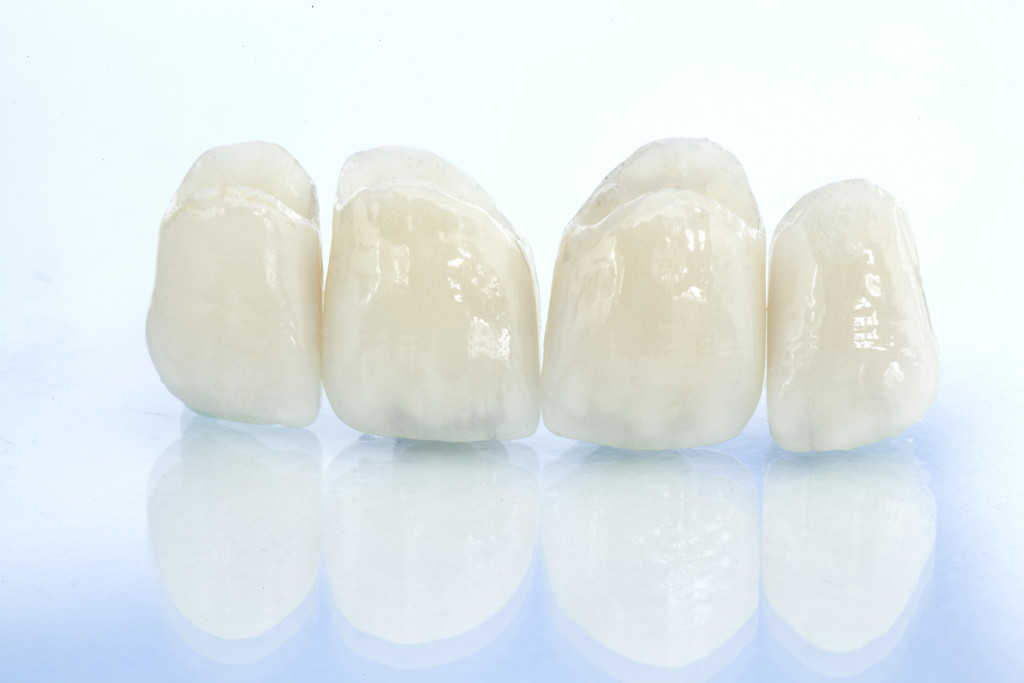The Halloween season is here, which means candies and chocolates are almost everywhere. But for those with a sweet tooth, sugary treats are always available all year round. Ever since we’re kids, our parents have restricted us from consuming too many sweets. Some even have rules at home to prevent their children from developing a sugar addiction. We are told that candies and chocolate cause tooth decay or even tooth loss.
The truth is, sugar doesn’t directly bring cavities. It causes tooth decay when you fill your mouth with cavity-causing bacteria, which transforms sugar into acid that destroys the tooth enamel. Bacteria in the oral cavity treat sugar as an energy source. They produce more acid that damages the teeth. Once the sugar and acid coat the tooth, it becomes prone to decay, which results in cavities. When left untreated, tooth decay may require a major procedure to save the rest of your teeth. Some even undergo jaw surgery to avoid excessive wear and breakdown of their teeth.
Despite this scary fact, you can still enjoy sweet treats without experiencing tooth decay. How’s it possible? Taking the right precautions and following good oral hygiene allow you to enjoy your sweet addiction. To know more, here are ways to protect your teeth when eating sweets.
Drink plenty of water
Drinking water, particularly those that contain fluoride, is the best way to prevent cavities. When you eat sugary foods, unwanted sugar remains stuck in between the teeth. Water helps clean the mouth and prevents sugar from causing acid that accelerates wear in the enamel.
Water also helps in diluting an acid, or the bacteria produced by your mouth. If saliva production is low, you feel more dehydrated, which leads to a dry mouth, making you prone to tooth decay. A great tip is to rinse your mouth with water after snacking. Do this for 30 to 60 seconds and wait for 30 minutes to brush your teeth.
Take anti-decay supplements
Here’s some good news: You can take supplements that provide an extra boost for your mouth’s decay-fighting agents. For people with low saliva production, you can take a saliva supplement to help your mouth eliminate excess saliva. When taking oral prescription products, make sure to consult a trusted dental professional before consuming any supplement. They can even provide suggestions based on your needs.
Another alternative is artificial saliva, which comes in several forms, such as gel, swab, oral rinse, oral spray, and dissolving tablets. You can also try over-the-counter saliva substitutes containing xylitol to prevent bacteria growth.
Maintain consistent oral hygiene
Your best bet in fighting tooth decay is to observe regular oral hygiene. Plaque can promote bacteria in the mouth within 12 to 24 hours. In this case, you need to brush your teeth after eating anything sweet to keep your teeth healthy and your mouth clean. Brush your teeth but make sure to allot 30 minutes after consuming sugary foods. Dental experts say that brushing too soon right after eating removes the enamel.
When brushing, look for a toothpaste that restores natural calcium and reinforces the tooth enamel. Dentists also recommend brushing twice a day for two minutes each and flossing once per day using 18 to 24 inches of floss.
Consider low-sugar options
Although it may not be an ideal option for sugar addicts, low-sugar options are more beneficial for your oral health. You’ll find a lot of low-sugar options in the market, such as fruits, dark chocolate, and sugarless cake. These sweet treats don’t only taste great, but they’re also good for the health.
If there’s one thing you should avoid, reduce the intake of chewy and long-lasting sweets. Their composition allows sugar to stay on your teeth, causing more damage. One example is chewing on taffy chocolate bars which leads to prolonged acid attacks.
Consult a dentist
Every person has unique dental concerns and priorities. If your concern is to prevent cavities caused by sugar consumption, consult a dentist regularly to undergo cavity prevention procedures. The dentist will check for potential issues, such as tooth decay, and apply the proper treatment before it worsens.
Cavity prevention procedures include dental cleanings, x-rays, dental exams, sealants, oral hygiene aid, and home care suggestions.
Whether your sugar addiction is genetic or you’re simply obsessed with chocolate, there are plenty of ways to protect your teeth to ensure your love for sweets won’t damage your oral health. At the end of the day, too much of anything is always bad. Remember, candies and chocolate are always available, but you only have one set of teeth to take care of.

